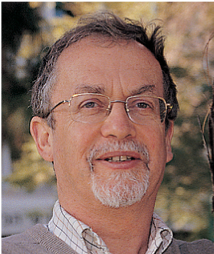
Date:
Location:
Speaker:
ABSTRACT:
The uniquely-efficient lubrication of articular cartilage up to high physiological pressures in the major joints (hips and knees) has been attributed to surface boundary layers of macromolecules complexed with phosphatidylcholine (PC) lipids, where the exposed highly hydrated phosphocholine groups massively reduce friction via the hydration lubrication mechanism. We have emulated nature by constructing hydrogels exposing similar PC-based boundary layers at their surfaces, and by incorporating such PC lipids in the hydrogel bulk we achieve selfmaintaining lubricant layers which permanently reduce the friction and wear of the hydrogels by up to a 100-fold or more, down to the superlubrication level (coefficient of friction < 0.01) at contact stresses up to many MPa. Such hydrogels hold promise in a wide range of biomedical applications (I thank my co-workers on this study: Weifeng Lin, Monika Kluzek, Noa Iuster, Eyal Shimony, Nir Kampf and particularly Ronit Goldberg).
BIO:
Born in Israel, Prof. Jacob Klein studied in the UK, and was awarded a BA in Physics (1973), and MA and PhD degrees (1977), all from Cambridge University. Following a postdoctoral period at the Weizmann Institute, he was appointed to the Institute’s faculty in 1981. During that period he was for some years also a University Demonstrator in Physics at the University of Cambridge and Fellow of St. Catharine’s College. Prof. Klein headed the Institute's Polymer Research Department from 1989 to 1991, and was Chair of the Weizmann Institute’s Scientific Council from 1998-2000. Concomitant with his responsibilities at the Institute, from 2000-2007 Prof. Klein also served as the Dr. Lee’s Professor of Chemistry and the Head of the Department of Physical and Theoretical Chemistry at the University of Oxford. Prof. Klein is the incumbent of the Herman Mark Professorial Chair of Polymer Physics at the Weizmann Institute.
Prof. Klein studies the behaviour of soft matter, including polymers, the crucial ingredient in many modern materials that have revolutionized daily living, making possible familiar objects ranging from computer disk drives and integrated circuits to artificial implants and electric cars. Polymers are composed of thousands of small molecules connected end-to-end to form flexible chains; his team has developed extremely delicate equipment that can measure the forces needed to stretch molecules and rub surfaces past each other. Insights gained from his research are informing the development and modification of new materials with a wide range of industrial applications. Among his findings are the mechanism by which entangled polymers move, the forces between surfaces coated with polymers, and, more recently, identification of the means by which human joints are so well lubricated—which has relevance for improved treatments for arthritis and the development of better artificial joint implants.
Honors and awards received by Prof. Klein include the Rothschild Prize in Chemistry and Physics (2020), the Gold Medal of the Israel Chemical Society (2019), the Liquid Matter Prize of the European Physical Society (2017), the David Turnbull Award of the Materials Research Society (2015), the 2012 Tribology Gold Medal of the International Tribology Trust, the world's top award in its field, the Royal Society of Chemistry Soft Matterand Biophysical Chemistry Award (2011), the Israel Chemical Society Prize of Excellence (2010), the Kolthoff Prize from the Technion – Israel Institute of Technology (2007), the Paris Sciences Medal of the City of Paris (2004), the Ford Prize for High Polymer Physics of the American Physical Society (1995), as well as many prestigious endowed lectures world-wide. He is also the recipient of 2 ERC Advanced Grants and 4 ERC Proof-of-Concept grants. Prof. Klein was elected as a member of the Israel Academy of Sciences and Humanities (2016) and is a Fellow of numerous prestigious professional societies in the US, Europe, and Japan.



